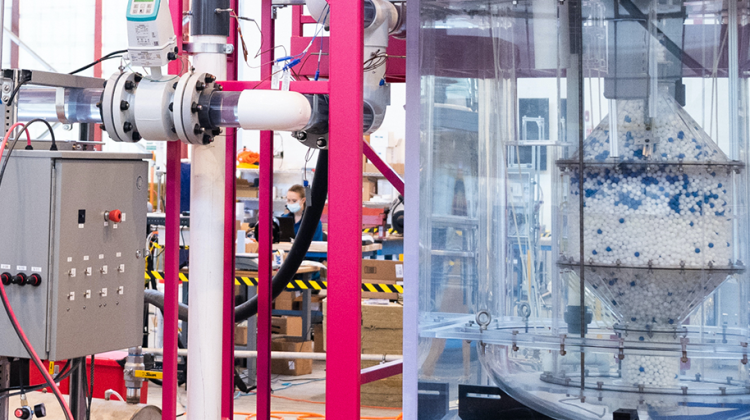Rapid Learning Cycles Masterclass: Agile Technology Development For Climate Tech Organizations
Learn How Agile Principles Can Accelerate the Technology We Need the Most
We’ve been working to accelerate sustainable technology since 2012, with demonstrated results in renewable energy, bio-based solutions, sustainable materials and reinvented consumer products.
Our methods reduce time-to-market by at least 30%, cut development costs in half, and significantly increase ROI for investments in climate tech development and sustainability programs. You’ll learn:
- Why Agile Software Development is a poor fit for physical products, why this is an even bigger problem for climate tech, and how to apply agile principles that fit the nature of the work you need to do.
- Why most development projects experience unnecessary design loopbacks, why sustainable technology is at even higher risk —and how your teams can eliminate these obstacles.
- How to use Agile principles to make better decisions and why this is the key to accelerating innovation for sustainable technology: making your most important decisions at the right time with the right people, and the best available knowledge.
- How to identify immediate areas within your own programs where a little bit of agile thinking now can smooth the path for future development, whether or not you put in a full agile structure.
This master class will be led by Katherine Radeka, the founder of the Rapid Learning Cycles Institute and the developer of the Rapid Learning Cycles framework. Teams may bring examples from their own projects for the interactive sessions, or they may work a climate-focused case study.
Not Sure? Try a One Hour Introductory Webinar
Katherine Radeka will host a free introductory webinar on December 7th/8th to introduce the topics covered in this Masterclass. The webinar will provide an overview of the work we've already done to support climate tech and sustainable technology development, provide an introduction to the framework and why it delivers the results that it does, and share more details about how teams can get started, whether they're working in research labs, startup teams or established product development groups.
Product Development Agility Will Accelerate Net Zero!
In this short video, Rapid Learning Cycles Institute Founder and CEO, Katherine Radeka, presents why accelerating product development in every industry vertical as a whole is the fastest path to reach our commitments of 1.5C by 2050.
Who Should Attend This Master Class?
- Product Development Leaders, Scientists and Engineers working in climate tech-related areas.
- Sustainability Leaders responsible for helping their companies hit targets for decarbonization.
- Project leaders with teams focused on developing sustainable products.
- Anyone interested in how we can accelerate our progress in climate tech.
Total Time Commitment: 4 hours, in a live, interactive Zoom call that will not be recorded.
Thurs., Jan. 4, 2024:
10 am – 2 pm PST
11 am – 3 pm MST
12 pm – 4 pm CST
1 pm – 5 pm EST
Fri., Jan. 5, 2024:
7 am – 11 am NZDT
Masterclass: Agile Technology Development for Climate Tech Organizations Pricing
Masterclass Registration for Teams (of 2+)
Masterclass Registration for Individuals

Nicolas Zweibaum
Kairos Power
"We have observed that the conventional nuclear development cycle is long, slow, and capital intensive.
At Kairos Power, we are disrupting this cycle by adopting a rapid, iterative approach to accelerate design, test, and building. Our approach leverages multiple design-build-test cycles with non-nuclear and nuclear systems prior to the first commercial reactor.
Since 2019, Kairos has been working with Rapid Learning Cycles to reduce development risk associated with some of its most complex systems."



